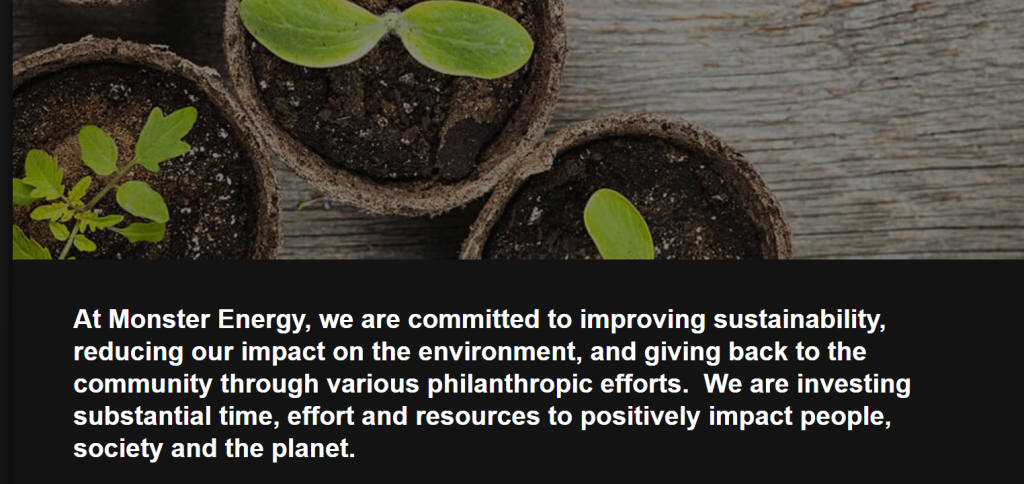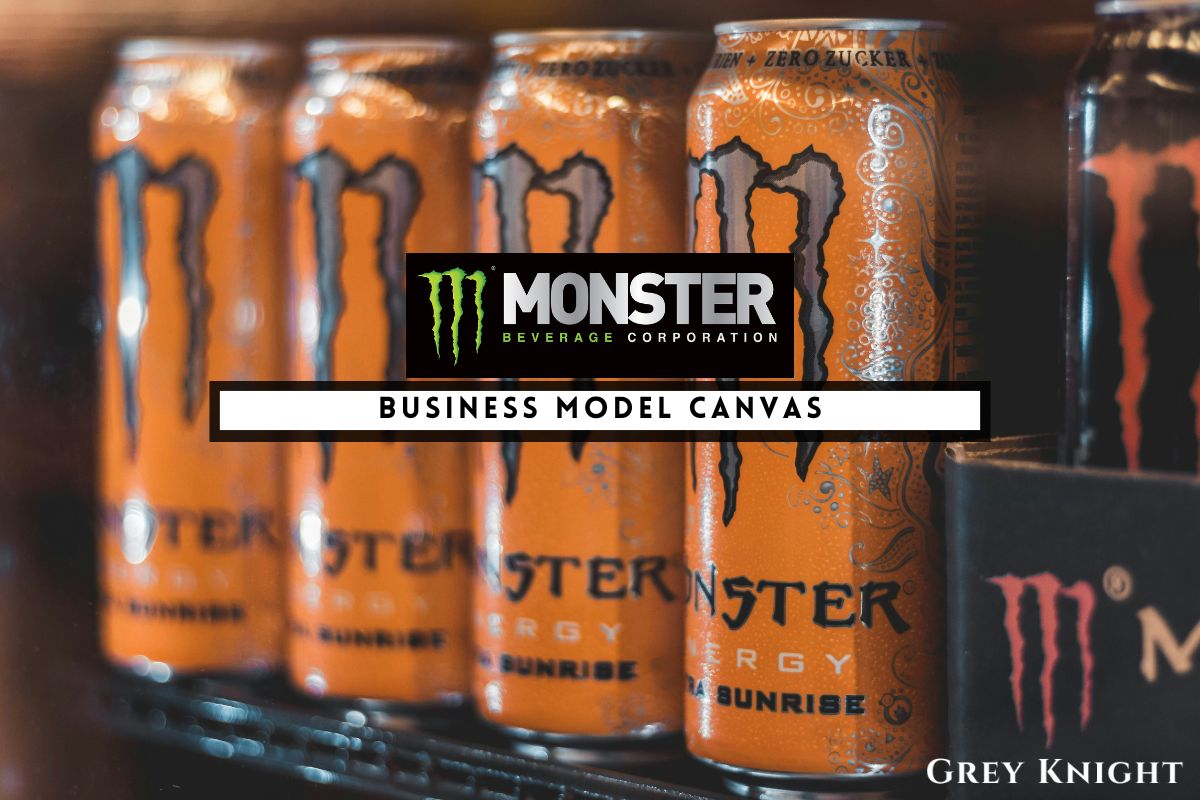Table of Contents
ToggleA Brief History of Monster Beverage
Monster Beverage Corporation, originally known as Hansen Natural Corporation, was founded in 1935 by Hubert Hansen and his three sons in Southern California. The company started by selling natural juices and sodas, using fresh ingredients and natural flavors.
In the 1980s, the company shifted its focus to energy drinks and launched the Monster Energy brand in 2002. This proved to be a successful move, as Monster Energy quickly gained popularity and became one of the leading energy drink brands in the world.
In 2012, the company officially changed its name to Monster Beverage Corporation to better reflect its core product line. Monster Beverage Corporation has continued to grow and expand its product offerings, including additional energy drink flavors, juices, and teas.
Today, Monster Beverage Corporation is a global leader in the energy drink industry, with a strong presence in over 100 countries. The company continues to innovate and introduce new products to meet the evolving needs of its consumers.
Who Owns Monster Beverage?
Monster Beverage Corporation is owned by its shareholders, who are individuals or institutions that hold shares of the company’s stock. The top 10 shareholders of Monster Beverage Corporation as of the most recent filing date are as follows:
1. The Coca-Cola Company
2. Vanguard Group, Inc.
3. BlackRock, Inc.
4. State Street Corporation
5. Fidelity Management & Research Company
6. Capital Research Global Investors
7. Morgan Stanley
8. JPMorgan Chase & Co.
9. Northern Trust Corporation
10. Bank of America Corporation
These shareholders collectively hold a significant portion of the company’s outstanding shares and have a vested interest in the performance and management of Monster Beverage Corporation.
Monster Beverage Mission Statement

Monster Beverage Corporation’s mission statement is focused on providing high-quality and innovative energy drinks and beverages to consumers. The company is committed to delivering products that not only taste great, but also provide an energy boost to help individuals achieve their goals and live an active lifestyle. Monster Beverage Corporation aims to be a leader in the industry, constantly striving to exceed customer expectations and expand its reach in the global market.
How Monster Beverage Makes Money?
Monster Beverage Corporation operates within the energy drink and alternative beverage industry and primarily makes money through the sale of its branded products. The company’s revenue stream is generated through the production and distribution of energy drinks, including the iconic Monster Energy drink, as well as various other beverage products. Monster achieves sales through retail channels, such as grocery stores, convenience stores, and gas stations, as well as through partnerships with distributors and retailers. Additionally, the company may also generate revenue through licensing agreements and promotional partnerships. Overall, Monster Beverage Corporation’s business model revolves around the manufacturing and sale of energy drinks and other beverage products to generate a steady stream of revenue.
Monster Beverage Business Model Canvas
The business model canvas is a strategic management tool that allows businesses to clearly visualize and analyze the key components of their business model. It consists of nine building blocks that cover the main aspects of a business, including the target market, the value provided to customers, the distribution channels, the revenue streams, the key resources and activities, and the cost structure.
Customer Segments:
– Monster Beverage Corporation targets the consumer market, with a focus on young adults and athletes.
– The company also caters to retailers, wholesalers, and distributors for its business-to-business segment.
Value Propositions:
– Monster offers a range of energy drinks and beverages designed to provide customers with a boost of energy and enhance performance.
– The company focuses on providing beverages with unique flavors, innovative packaging, and marketing campaigns targeting the young adult demographic.
Channels:
– Monster distributes its products through a diverse range of channels, including retail stores, convenience stores, supermarkets, gas stations, and online platforms.
– The company also partners with distributors and wholesalers to reach a wider customer base.
Customer Relationships:
– Monster builds customer relationships through targeted marketing campaigns, sponsorships of sports and music events, and engaging with customers on social media platforms.
– The company also emphasizes customer feedback and product innovation to meet changing consumer preferences.
Revenue Streams:
– The primary revenue stream for Monster comes from the sale of energy drinks and beverages through various distribution channels.
– The company also generates revenue through licensing agreements, sponsorships, and collaborations with other brands.
Key Resources:
– Monster’s key resources include its product development and innovation teams, manufacturing facilities, distribution network, and brand image.
– The company also relies on its relationships with suppliers, marketing partners, and retail channels.
Key Activities:
– Monster’s key activities include product research and development, marketing and advertising campaigns, manufacturing and distribution, and managing partnerships and sponsorships.
– The company also focuses on brand building and market expansion through new product launches and strategic alliances.
Key Partners:
– Monster partners with suppliers for raw materials, packaging, and distribution logistics.
– The company also collaborates with retailers, distributors, and marketing agencies to promote its products and expand its reach in the market.
Cost Structure:
– The main costs for Monster include raw materials, manufacturing, distribution, marketing, and sales expenses.
– The company also incurs costs related to research and development, employee salaries, and administrative overhead.
Monster Beverage’s Competitors
Monster Beverage Corporation faces strong competition in the energy drink industry. Some of its top competitors include Red Bull, Rockstar, 5-hour Energy, Coca-Cola’s energy drinks, and PepsiCo’s energy drinks. These companies offer a range of energy drink products that compete with Monster’s popular brands such as Monster Energy and Reign. However, Monster Beverage Corporation has continued to thrive and maintain its market share in the highly competitive energy drink market.
Monster Beverage SWOT Analysis
Strengths:
1. Strong brand recognition and market presence
2. Diversified product portfolio, including energy drinks, juices, and teas
3. Wide distribution network and strong partnerships with retailers
4. Focus on innovation and new product development
Weaknesses:
1. Dependence on the energy drink category for a significant portion of revenue
2. Vulnerability to negative public perception and health concerns related to energy drinks
3. Limited presence in international markets compared to competitors
4. Reliance on third-party manufacturing and bottling faciliti
Opportunities:
1. Expanding into new beverage categories and healthier product options
2. Growing consumer demand for functional and wellness beverages
3. Increasing presence in international markets, particularly in Asia and Europe
4. Potential for strategic partnerships and acquisitions to expand product offerings and reach new customers
Threats:
1. Intense competition from large beverage companies and smaller, niche brands
2. Regulatory challenges and potential for increased government scrutiny of the energy drink industry
3. Fluctuating commodity prices and supply chain disruptions
4. Shifting consumer preferences towards healthier and natural alternatives to traditional energy drinks.
Concluding Analysis
In analyzing the business model of Monster Beverage Corporation, it is clear that the company’s focus on product innovation and strategic partnerships has been a key driver of its success. With a solid foothold in the energy drink market and a growing presence in other beverage categories, Monster Beverage Corporation is well-positioned for continued growth. As an analyst, I believe that the company’s strong brand recognition and ability to adapt to changing consumer preferences will play a crucial role in shaping its future success. Additionally, the company’s global expansion efforts and continued investment in marketing and distribution will further contribute to its long-term growth potential. Overall, I am optimistic about the future prospects of Monster Beverage Corporation and look forward to seeing how the company will continue to thrive in the competitive beverage industry.
Additional Resources
To keep learning and advancing your career, we highly recommend these additional resources:
Business Model Canvas of The Top 1,000 Largest Companies by Market Cap in 2024
A List of 1000 Venture Capital Firms & Investors with LinkedIn Profiles
Peter Thiel and the 16 Unicorns: The Legacy of Thiel Fellowship












